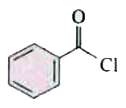Which one of the following is not a derived unit?
Joule
watt
Kilogram
newton
The correct Answer is:C
To solve the question "Which one of the following is not a derived unit?" we need to understand the difference between fundamental units and derived units.
1. Identify the Options: The options given are:
- A) Joule
- B) Watt
- C) Kilogram
- D) Newton
2. Define Fundamental and Derived Units:
- Fundamental Units: These are the basic units that are not derived from other units. They represent fundamental quantities such as mass, length, time, electric current, temperature, amount of substance, and luminous intensity.
- Derived Units: These are units that are derived from fundamental units. They are formed by combining fundamental units.
3. Analyze Each Option:
- Joule (A): This is a derived unit of energy. It is defined as one kilogram meter squared per second squared (kg·m²/s²).
- Watt (B): This is a derived unit of power. It is defined as one joule per second (J/s), which can also be expressed as kg·m²/s³.
- Kilogram (C): This is a fundamental unit of mass. It is not derived from any other unit.
- Newton (D): This is a derived unit of force. It is defined as kg·m/s².
4. Conclusion: Among the options, the kilogram is the only unit that is not derived from any other unit. Therefore, the answer to the question is option C) Kilogram.
Final Answer:
C) Kilogram
---
- A) Joule
- B) Watt
- C) Kilogram
- D) Newton
- Fundamental Units: These are the basic units that are not derived from other units. They represent fundamental quantities such as mass, length, time, electric current, temperature, amount of substance, and luminous intensity.
- Derived Units: These are units that are derived from fundamental units. They are formed by combining fundamental units.
- Joule (A): This is a derived unit of energy. It is defined as one kilogram meter squared per second squared (kg·m²/s²).
- Watt (B): This is a derived unit of power. It is defined as one joule per second (J/s), which can also be expressed as kg·m²/s³.
- Kilogram (C): This is a fundamental unit of mass. It is not derived from any other unit.
- Newton (D): This is a derived unit of force. It is defined as kg·m/s².
C) Kilogram
Topper's Solved these Questions
- UNITS AND MEASUREMENTSBook:NCERT FINGERTPS ENGLISHChapter:UNITS AND MEASUREMENTSExercise:Higher Order Thinking Skills
Explore 10 Videos
- UNITS AND MEASUREMENTSBook:NCERT FINGERTPS ENGLISHChapter:UNITS AND MEASUREMENTSExercise:Exemplar Problems
Explore 12 Videos
- THERMODYNAMICSBook:NCERT FINGERTPS ENGLISHChapter:THERMODYNAMICSExercise:Assertion And Reason
Explore 15 Videos
- WAVESBook:NCERT FINGERTPS ENGLISHChapter:WAVESExercise:Assertion And Reason
Explore 15 Videos
Similar Questions
Knowledge Check
Which of the following is not acid derivative?
A B
B C
C D
D
Which one of the following is not a unit of British system of units?
AfootBmetreCpoundDsecond
Which one of the following is not the unit of energy?
View SolutionWhich one of the following is not a functional unit of an ecosystem
View SolutionWhich one of the following is not a functional unit of an ecosystem
View SolutionWhich of the following is not derived from plants
View SolutionWhich one of the following is not considered as a part of the endomembrane system
Or
Which of the following has a single unit membrane?
(a) Ribosome
(b) Peroxisome
(c) Nucleus
(d) Centrosome
View SolutionWhich of the following is a derived lipid ?
View Solution

